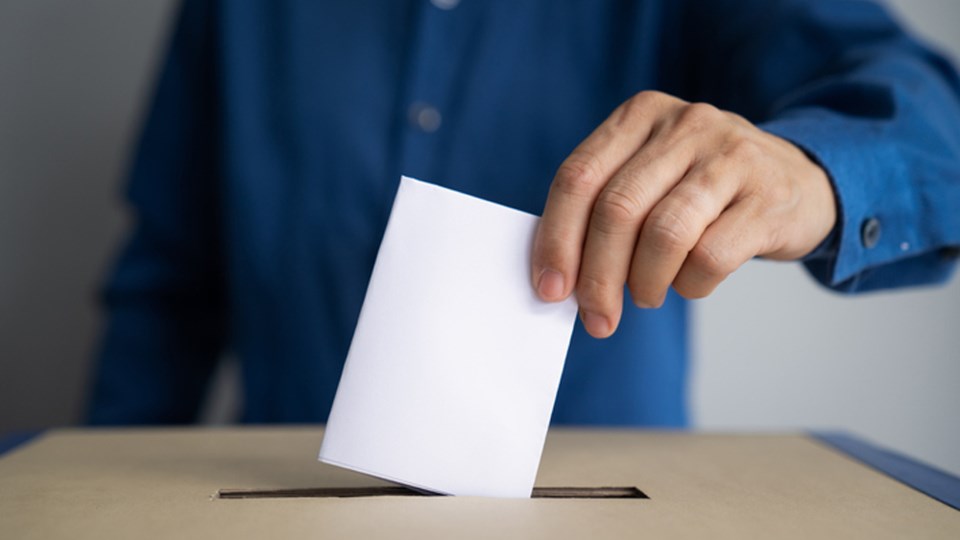Unless some drastic event takes place, we are still more than two years away from the next provincial election in British Columbia.
With the selection of Kevin Falcon as the new leader of the –°¿∂ ”∆µ Liberals, voters across the province can start to ponder which political party they would back once the opportunity to cast a ballot arrives again.
The –°¿∂ ”∆µ Liberal leadership race was not devoid of controversy. As reported in January 2022, the legitimacy of the list of party members was questioned by six of the seven participating campaigns. This is the type of story that does not enhance the profile of a political party in a positive way, regardless of the ultimate outcome of the contest.
Last month, Research Co. and Glacier Media asked British Columbians about five concrete proposals related to politics in the province. The results of the survey point to a public that is willing to explore ways to make leadership contests – as well as the activities of all political parties and individual legislators – more transparent.
Each provincial political party is responsible for the rules and regulations that govern its leadership races. We have abandoned the “convention-style” route, where delegates could switch allegiance directly on the floor of a venue, warmed by a speech or proposal. Now, many parties rely on a cold, ranked ballot that can be cast days or weeks in advance.
The count and tabulation of the results of a leadership race is also in the hands of political parties. Some may look at this as a way of protecting the integrity of the process, but others may wonder if there is room for error – intentional or inadvertent – if no independent and professional outside entity is involved. The absence of an impartial arbiter can also lead to accusations of bias.
British Columbians are not particularly thrilled to see these processes organized, delivered and reviewed by party members, no matter how objective they may appear. More than three in five of the province’s residents (63 per cent) agree with relying on an independent professional accounting firm to administer leadership processes in provincial political parties. This is a view shared by majorities of British Columbians who voted for the –°¿∂ ”∆µ New Democratic Party (NDP) (71 per cent), the –°¿∂ ”∆µ Liberals (66 per cent) and the –°¿∂ ”∆µ Green Party (54 per cent) in the 2020 provincial ballot.
Another idea that has been floated around is to give Elections –°¿∂ ”∆µ the power to administer leadership contests in provincial political parties. A slight majority of British Columbians (53 per cent) would be open to the implementation of this system – a proportion that rises to 62 per cent among supporters of the –°¿∂ ”∆µ Liberals.
One issue that is often discussed during leadership races is youth participation. While the voting age in British Columbia remains the same as it is in every region of Canada (18 years on election day), political parties can and have allowed younger residents to take part in leadership contests. This is supposed to motivate minors to get involved in the electoral process and be ready to assume their civic duties and responsibilities once they reach adulthood.
British Columbians are not particularly convinced about allowing tweens and teens to effectively have the same voice as adults in the selection of a party leader. Almost seven in 10 of the province’s residents (69 per cent) believe that only people aged 18 and over should be allowed to vote in party leadership elections, and not any individual aged 12 to 17, even if they have been granted status as party members.
Rejection of underage participation in leadership contests is strongest among supporters of the –°¿∂ ”∆µ Liberals (77 per cent), followed by those who cast ballots for candidates representing the –°¿∂ ”∆µ NDP (73 per cent) and the –°¿∂ ”∆µ Greens (59 per cent) in 2020.
Finally, we reach the always-complex matter of the Freedom of Information and Protection of Privacy Act (FIPPA). While the dismay expressed at the current provincial government’s decision to charge fees for these requests has been swift and definitive, British Columbians believe the time is right to bring other elements of political life into the scope of FIPPA.
In our survey, 70 per cent of British Columbians agree with subjecting all political parties and all members of the legislative assembly of British Columbia to freedom of information requests. This would mean that the same ability that individuals currently have to review the decision-making process in the government – including who they choose to communicate with and how – would also be present to scrutinize the conduct of the opposition and all lawmakers.
None of these changes will be easy to implement. Political parties will undoubtedly express reservations about handing over leadership contests to an outside observer and will be wary of having to provide written records of their activities whenever the public requests them. Still, significant majorities of British Columbians believe the cause of transparency should still be pursued, regardless of the colour of the party that forms the government in Victoria.
Mario Canseco is president of Research Co.
Results are based on an online study conducted from February 12 to February 14, 2022, among 800 adults in British Columbia. The data has been statistically weighted according to Canadian census figures for age, gender and region. The margin of error, which measures sample variability, is plus or minus 3.5 percentage points, 19 times out of 20.





